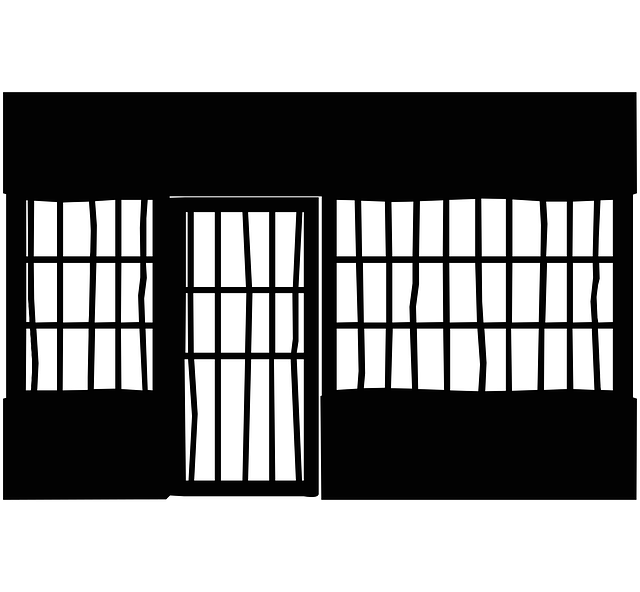The criminal law landscape is evolving rapidly due to technology, with digital forensics, data analytics, and cybercrime gaining prominence. Advanced tools streamline investigations and case management, while artificial intelligence challenges traditional legal rules. International criminal law faces the challenge of administering justice globally, with organizations like the ICC establishing universally accepted norms. Understanding accused persons' rights, including the right to silence and legal counsel, is crucial throughout the process from arrest to trial, where legal professionals play a vital role in ensuring fair defenses.
Delve into the dynamic world of criminal law, where emerging trends, technological advancements, and global perspectives intertwine to shape modern legal practices. This article explores key aspects, from understanding the role of technology in revolutionizing criminal justice to navigating the complexities of international criminal law and protecting rights of accused persons. Stay informed about the latest developments in this ever-evolving field, as we uncover insights that reshape our understanding of criminal law.
- Emerging Trends Shaping Criminal Law: A Deep Dive into Modern Legal Practices
- Understanding the Role of Technology in Revolutionizing Criminal Justice
- The Complexities of International Criminal Law: A Global Perspective
- Rights and Protections for Accused Persons: Navigating the Criminal Justice System
Emerging Trends Shaping Criminal Law: A Deep Dive into Modern Legal Practices

The landscape of criminal law is ever-evolving, shaped by emerging trends and technological advancements that are revolutionizing legal practices worldwide. From the rise of digital forensics to the increasing importance of data privacy laws, modern legal professionals must navigate a complex web of new challenges and opportunities. Digital evidence plays a pivotal role in contemporary criminal cases, with advanced analytics and artificial intelligence enhancing investigative capabilities and challenging traditional notions of admissibility.
As society becomes increasingly connected, so does the potential for cybercrimes, prompting legislation to catch up with the digital age. Additionally, issues like data protection, online privacy, and the ethical use of surveillance technologies are at the forefront of criminal law discussions. These trends necessitate a deeper understanding of technology’s intersection with justice, pushing legal experts to adapt and stay abreast of rapid technological advancements in their field.
Understanding the Role of Technology in Revolutionizing Criminal Justice

In today’s digital era, technology is playing a pivotal role in revolutionizing various aspects of society, and criminal justice is no exception. The integration of advanced tools and systems has brought about significant changes in how law enforcement agencies investigate crimes, collect evidence, and manage cases. From sophisticated surveillance techniques to data analytics, these innovations are enhancing the efficiency and accuracy of criminal law proceedings.
For instance, digital forensics enables investigators to uncover hidden clues on electronic devices, providing invaluable insights into a crime’s timeline and motivations. Additionally, advanced data management systems streamline case documentation, making it easier for legal professionals to access critical information promptly. This technological advancement not only expedites the justice process but also improves accuracy, ensuring that every detail is considered during trials.
The Complexities of International Criminal Law: A Global Perspective

The realm of international criminal law introduces a layer of complexity within the broader field of criminal justice, as it navigates the challenges of applying legal standards across diverse nations and cultures. This global perspective demands an understanding that criminal laws vary significantly from one country to another, shaped by historical contexts, social norms, and political ideologies. When considering international crimes, such as genocide, war crimes, or crimes against humanity, the task of harmonizing these differing legal frameworks becomes a crucial aspect of administering justice on a worldwide scale.
In today’s interconnected world, where international conflicts and human rights violations often transcend borders, there is an increasing need for consistency in criminal law application. International organizations, such as the International Criminal Court (ICC), play a pivotal role in establishing universally accepted norms and interpreting laws to address these complexities. This global effort aims to ensure that perpetrators of heinous crimes are held accountable, regardless of their nationality or where the crimes were committed, fostering a sense of justice and accountability on an international level.
Rights and Protections for Accused Persons: Navigating the Criminal Justice System

In any criminal law scenario, it’s paramount to understand that accused persons have specific rights and protections guaranteed to them by the justice system. These include the right to remain silent, ensuring no self-incrimination, and the right to legal counsel, facilitating a fair defense. The process involves various stages, from arrest to trial, where these rights come into play. For instance, during questioning, an accused individual can exercise their right to consult with an attorney present.
Navigating the criminal justice system requires a thorough grasp of these rights and protections. Accused persons must be informed of their legal standing and the potential consequences of their actions. Legal counsel plays a pivotal role in guiding them through this complex landscape, ensuring their rights are upheld and providing the best possible defense strategy based on the specific criminal law under consideration.
In conclusion, the modern landscape of criminal law is defined by emerging trends, technological advancements, global complexities, and a constant evolution in rights and protections. As we navigate this dynamic environment, staying informed about these developments is crucial for both legal professionals and the general public. Understanding how technology, international cooperation, and changing societal norms shape criminal law enables us to foster a more just and effective criminal justice system. By keeping up with these trends, we can ensure that our legal practices remain responsive to the needs of society at large.
